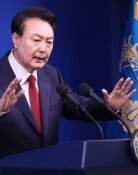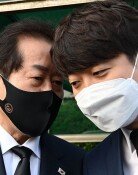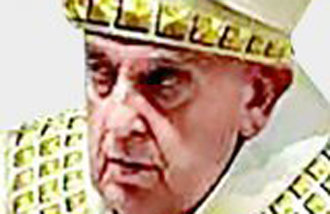`Progress in N.K. Nuke Disarmament Unlikely Soon`
`Progress in N.K. Nuke Disarmament Unlikely Soon`
Posted August. 28, 2008 08:41,
Chuck Downs, co-chairman of the U.S. Committee for Human Rights in North Korea and a veteran of Northeast Asian issues for more than two decades, said Pyongyangs threat to halt disabling its nuclear facilities is a repeat of its stalling tactic by backtracking on what it agreed to.
He also said he has a pessimistic view on further progress in North Koreas denuclearization within the remaining term of the Bush administration.
North Korea expert Stephen Costello, who served as director of the Program on Korea in Transition at the Atlantic Council, echoed Downs opinion, saying, By the announcement, the North Korean government made clear that it will talk with the next president of the United States.
Chances are that the disablement of North Koreas nuclear program and verification work will lose impetus in the short run.
Costello said Pyongyangs abrupt turnabout is expected to undermine President Bushs standing in the administration, which has pulled out all the stops to produce visible results.
Bruce Klingner, senior fellow at the Heritage Foundation in Washington, DC, forecast a new round of denuclearization in North Korea will resume under the new administration and that the communist regime is likely to put the new U.S. president to the test from the outset.
On the fate of the six-party talks, David Straub, Korean studies program associate director at Stanford University, said the dialogue faces a fundamental crisis.
As the talks have failed to make North Korea commit to denuclearization, the remaining five nations in the talks are hesitant over offering incentives such as the provision of nuclear reactors, said Straub. The framework of the six-way talks rife with ambiguity has hit a major snag, he said.
Klingner, former head of the Korea desk at the U.S. State Department, said many U.S. experts think Pyongyangs brinkmanship is not a negotiating tactic but a strategy to gain recognition as a nuclear country. If this is Pyongyangs true intention, no incentives will coax the county to renounce nuclear weapons, he said.
North Korea has always adopted policies that seemingly gave it the upper hand, but it is doubtful if they ever got it. Since the 1990s, North Korean leaders have made various choices in nuclear negotiations, but these have never benefited their country and people.
Washingtons equivocal negotiation practices are partly responsible for this development, experts said.
Though the U.S. administration didnt elaborate on bilateral talks on disablement, declaration and verification held in March and April, Pyongyang might have believed that declaration of its nuclear facilities would automatically lead to its removal from the U.S. list of terrorism sponsoring nations, said Downs.
The hard-pressed Bush administration went easy on Pyongyang to ensure the still-unfinished disablement of North Korea`s main nuclear facility in Yongbyon. At this point, some question if Washingtons approach was right, said Straub.
What is noticeable is the timing of the announcement, Costello said. North Korea announced the suspension of its nuclear disablement in time for the U.S. Democratic National Convention and the end of the Beijing Olympics.
It is a message for Democratic presidential candidate Barack Obama, who has expressed his willingness to engage in dialogue with North Korea. North Korea also considered China to avoid putting a damper on the Beijing Olympics, Costello said.
triplets@donga.com
Headline News
- Korean president faces debate limitations unlike U.S. counterpart
- KEPCO's first quarter profits failed to meet market expectations
- Teenagers are left out of discussions about national pension
- 2 consultative bodies submit minutes regarding increasing number of medical students
- Woo Sang-hyuk's rivalry and friendship transcend borders







